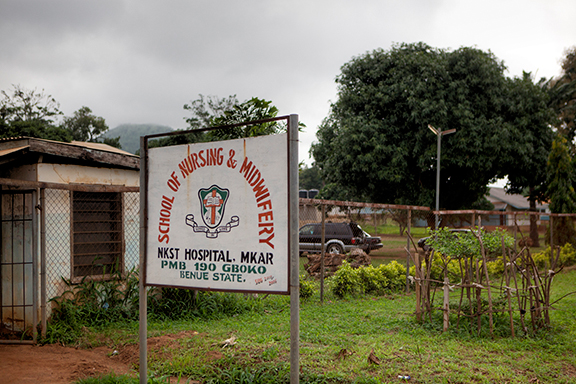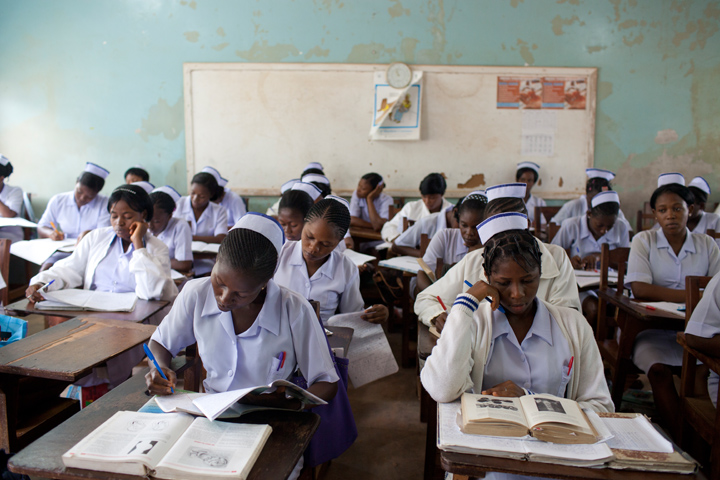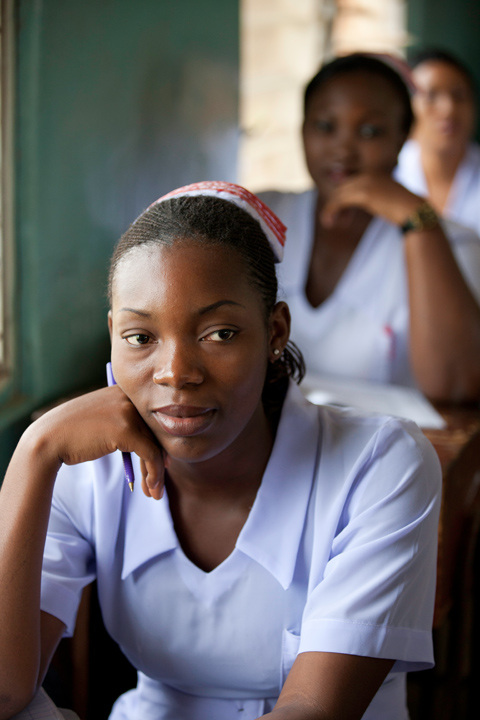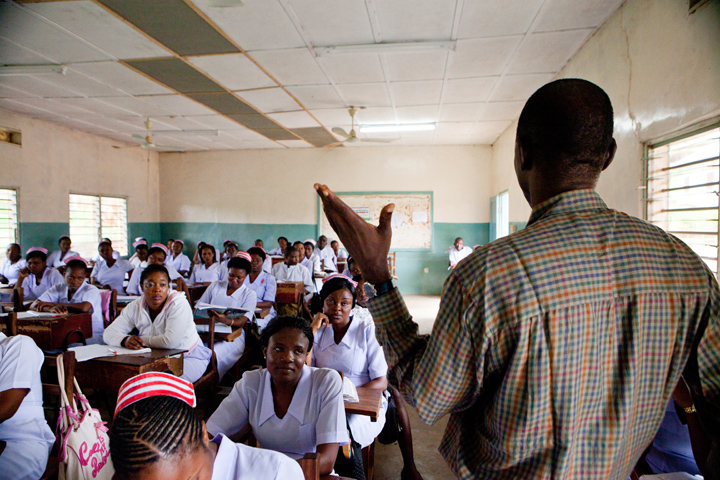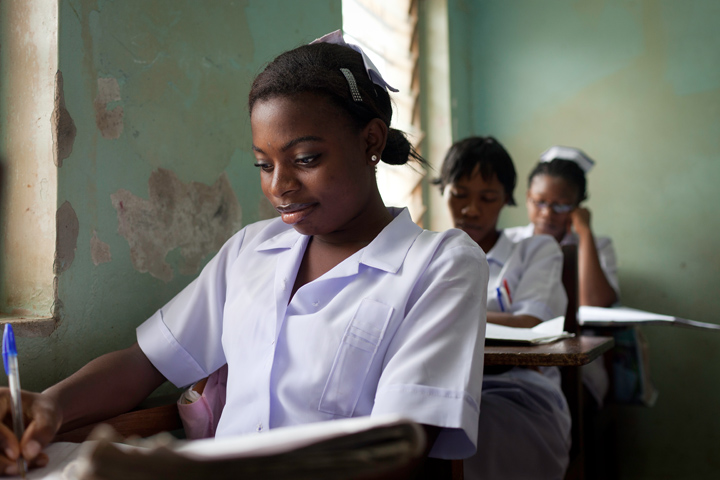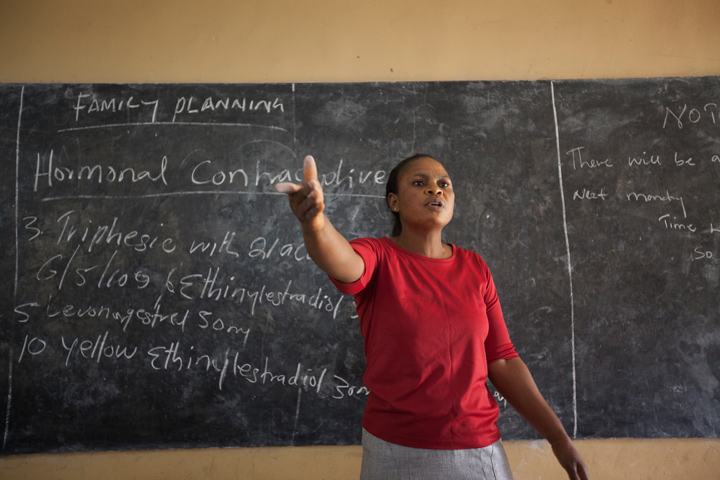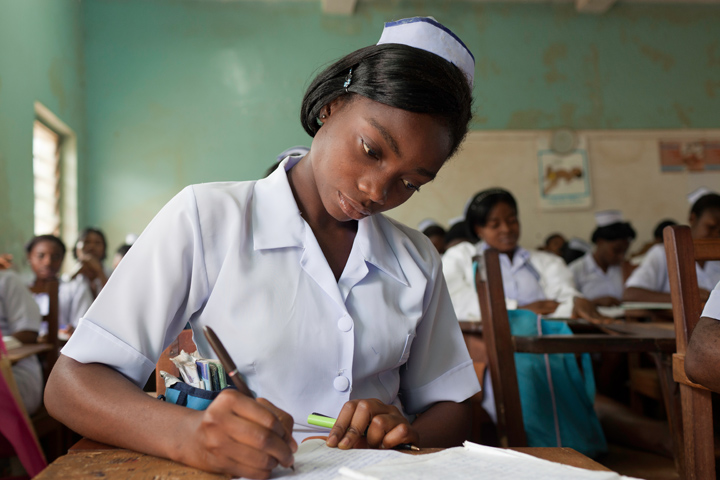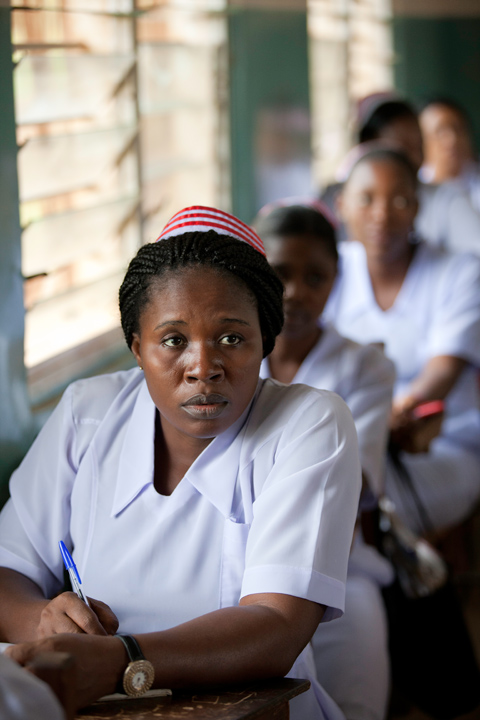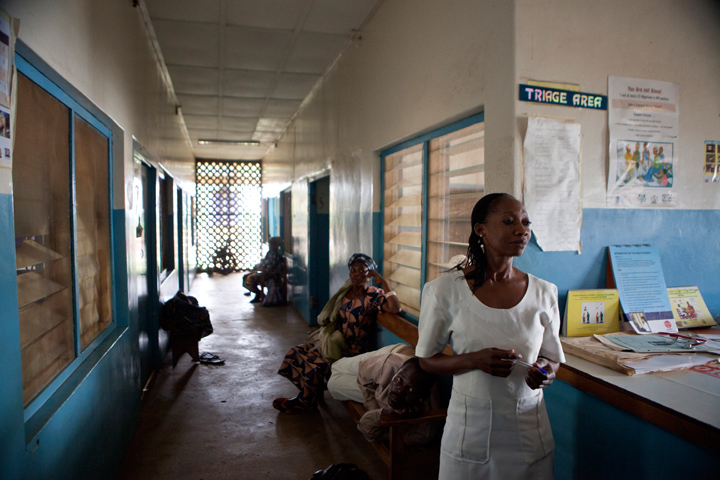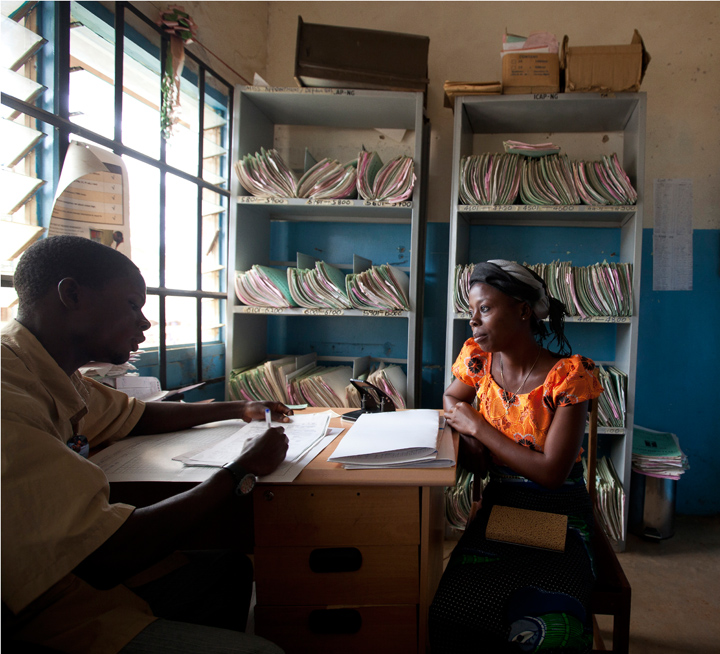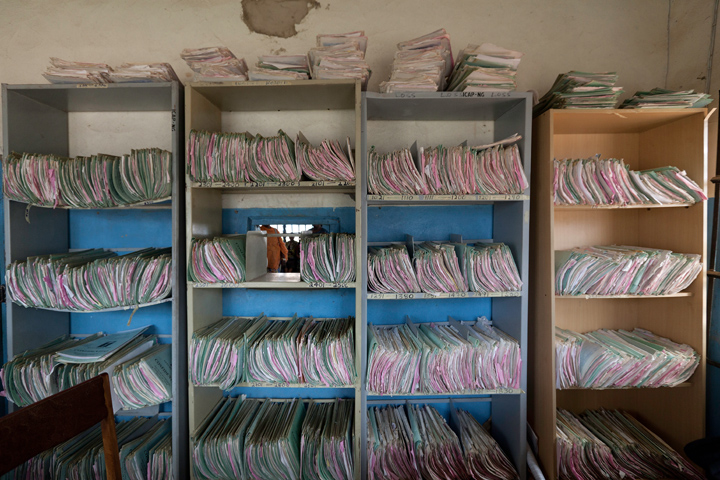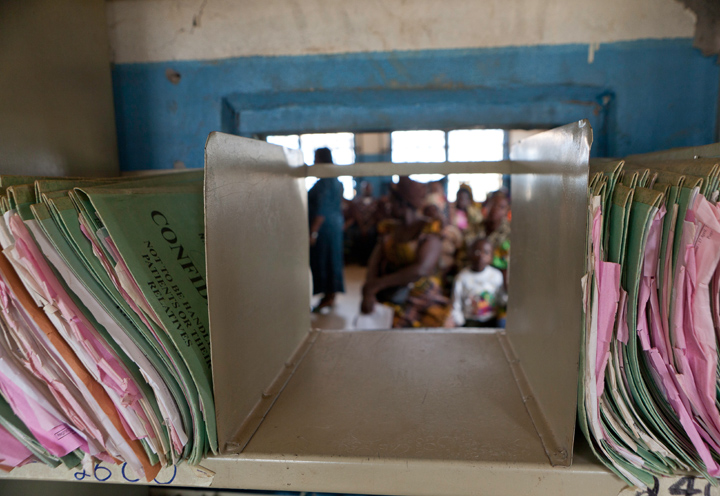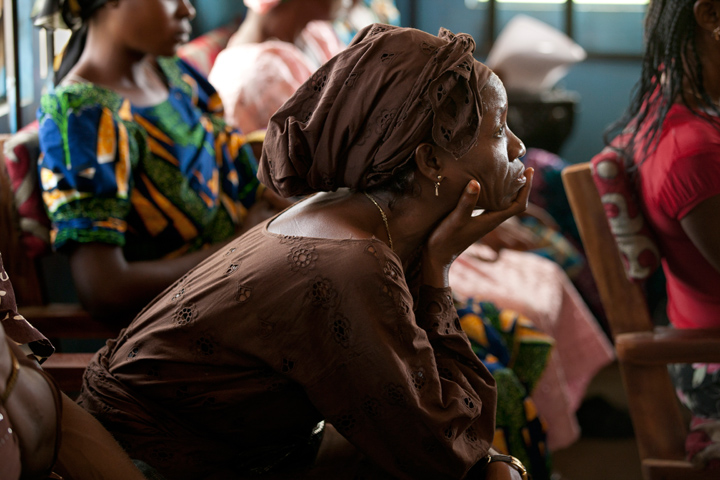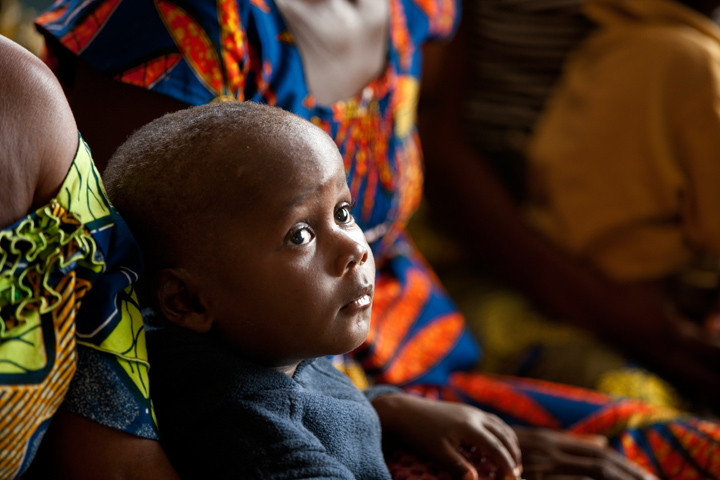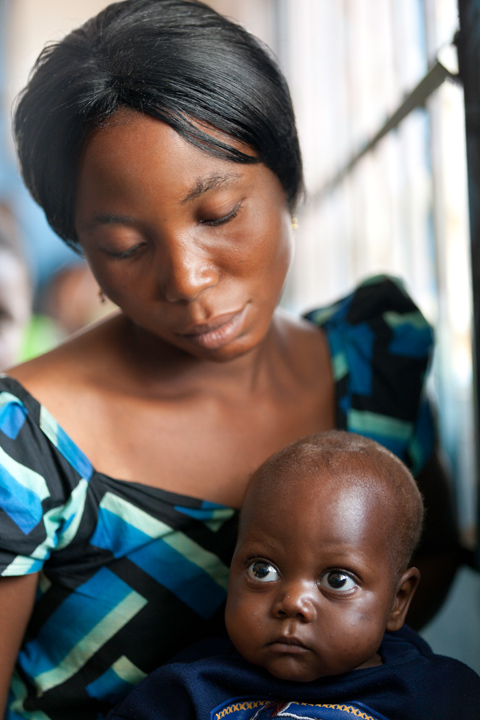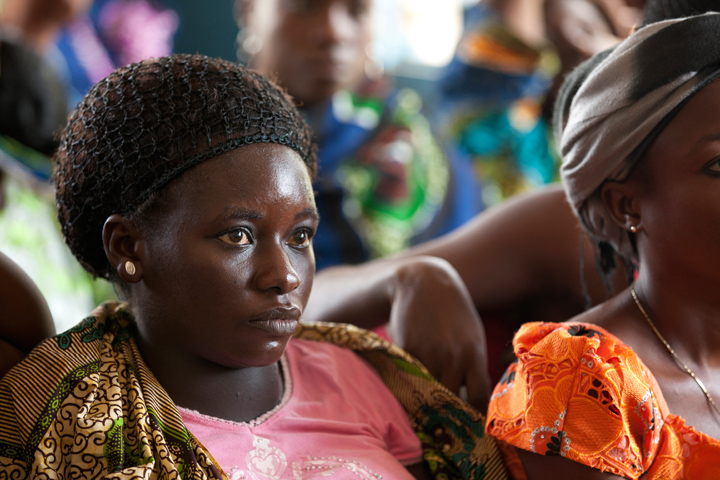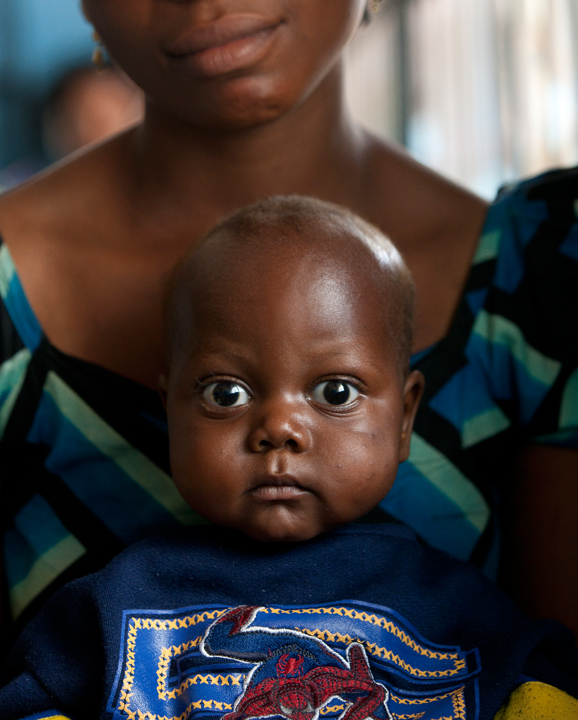This is the concluding chapter in this series, and will focus on healthcare training and an AIDS clinic at the NKST church headquarters facility. Some personal impressions will follow the visual presentations.
The NKST reproductive-health project recently upgraded a center for educating midwives and nurses on reproductive-health issues, particularly basic family planning, contraceptive technology, and post-abortion-care services. The NKST education course produces a large pool of skilled family-planning attendants, whose outreach provides basic healthcare services to the wider community. Below is a series of photos taken in the classrooms.
This next series are photos taken in an AIDS clinic at the NKST facilities.
In my last night in Nigeria, I met with Dr. Mairo Mandara, director of the Packard Foundation programs, to go through a debriefing session on my experiences during the previous 10 days. She is a very bright, energetic, determined and outspoken woman, someone whom I greatly admire. I consider her, Thank-God Okosun, and some of the doctors I met to be true heroes. It would be easy for them to move to Europe or the U.S. and have a much easier life, but they are completely devoted to improving the quality of healthcare for so many of their fellow citizens; their hard-work and dedication is truly admirable.
I told Dr. Mandaro that Packard had indeed made progress in bringing family planning and post-abortion-care services to many communities, and that this changing cultural norms represented no small task . Apparently, I had only visited 20% of the projects that Packard had instituted in northern Nigeria, so the work that they had undertaken was even more widespread and extensive than what I was able to document. Yet, I told Dr. Mandara, there is so much work that remains to be done. The birth rate had been reduced to approximately 6 in the communities where they were working (as opposed to 10 or 12 before), which is definitley a big step in the right direction; nevertheless, without further reductions and better educational opportunities for children, it will be difficult for these communities to attain an improvement in their quality of life, and they will continue to struggle with poverty.
I asked Dr. Mandaro how much the Nigerian government contributes to women’s reproductive healthcare programs, and her answer left me quite speechless — it was precisely zero. To make really lasting changes in a country the size of Nigeria, these successful programs must be scaled up; however, without government support, it will be difficult to deliver the necessary education and family-planning programs to the millions of people who need them.
If I ran a large foundation, I would insist that the government match my annual budget by at least 5-10 times. Of course, this is my personal blog and opinion and in no way reflects the policies of the Packard Foundation or the realities that they may contend with. But I find it shameful that the government of Nigeria does not contribute any funds or programs in family planning. Despite the handicap of working without government support, Packard has made a significant contribution to the well-being of many communities in northern Nigeria.

